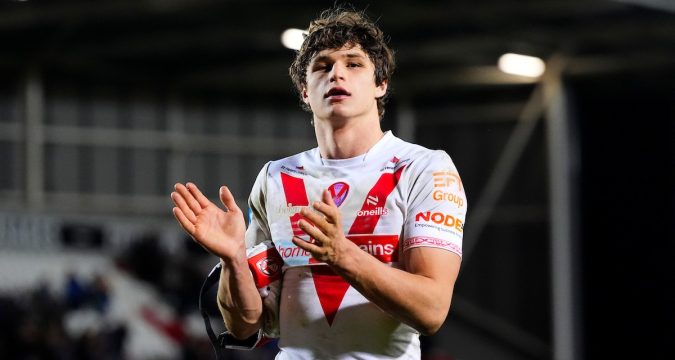 JAKE CONNOR may be leading the Man of Steel and Albert Goldthorpe Medal rankings, but he is almost certain to be excluded when England coach Shaun Wane names his 32-man provisional squad to face Australia in the Ashes series that begins at Wembley on 25th October.
Connor is the latest in a line of naturally talented players who have shone in dom
JAKE CONNOR may be leading the Man of Steel and Albert Goldthorpe Medal rankings, but he is almost certain to be excluded when England coach Shaun Wane names his 32-man provisional squad to face Australia in the Ashes series that begins at Wembley on 25th October.
Connor is the latest in a line of naturally talented players who have shone in dom Talking Rugby League: Harry Robertson worthy of England place
 JAKE CONNOR may be leading the Man of Steel and Albert Goldthorpe Medal rankings, but he is almost certain to be excluded when England coach Shaun Wane names his 32-man provisional squad to face Australia in the Ashes series that begins at Wembley on 25th October.
Connor is the latest in a line of naturally talented players who have shone in dom
JAKE CONNOR may be leading the Man of Steel and Albert Goldthorpe Medal rankings, but he is almost certain to be excluded when England coach Shaun Wane names his 32-man provisional squad to face Australia in the Ashes series that begins at Wembley on 25th October.
Connor is the latest in a line of naturally talented players who have shone in dom 